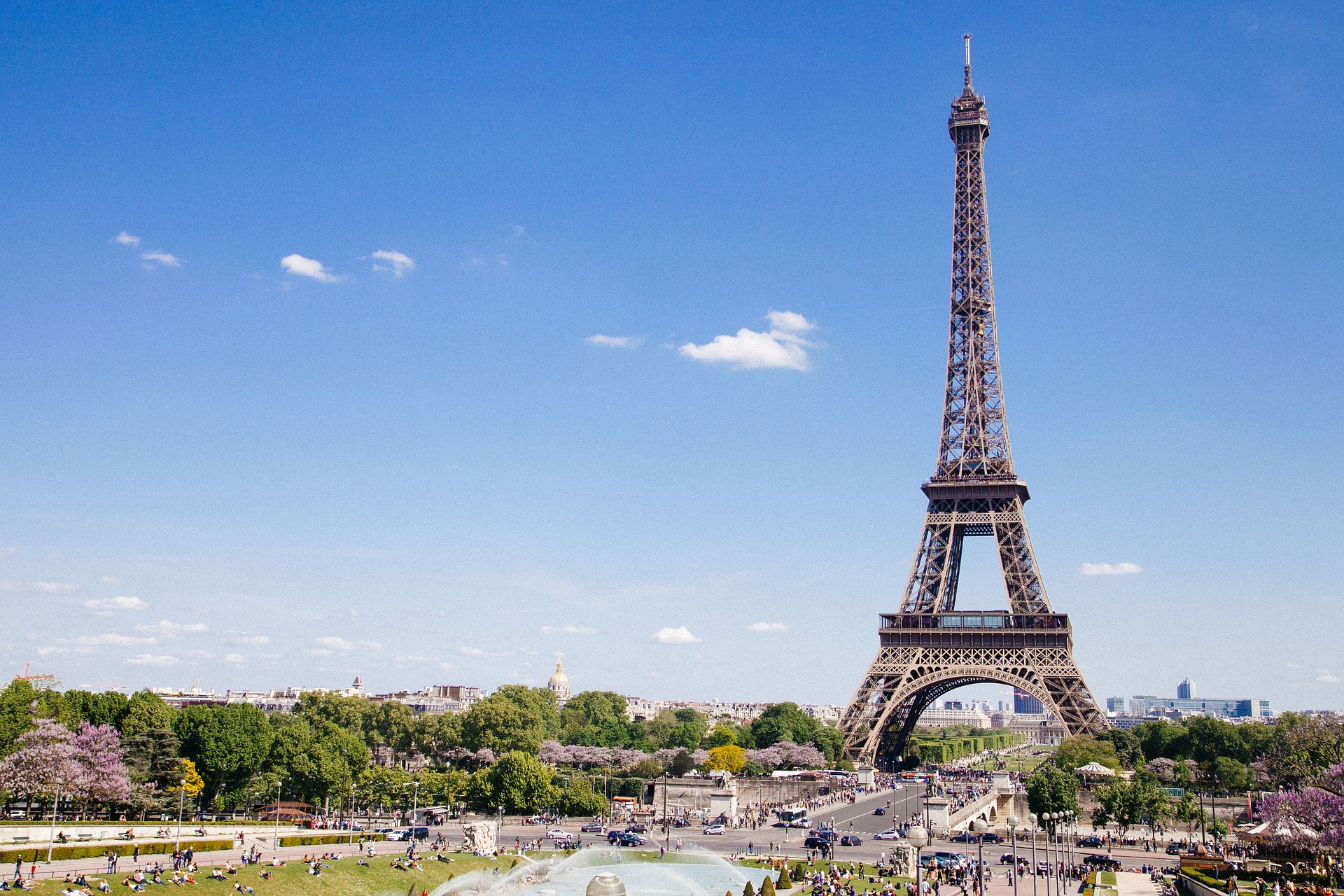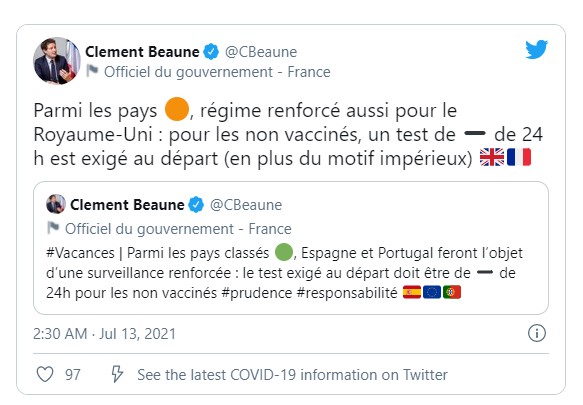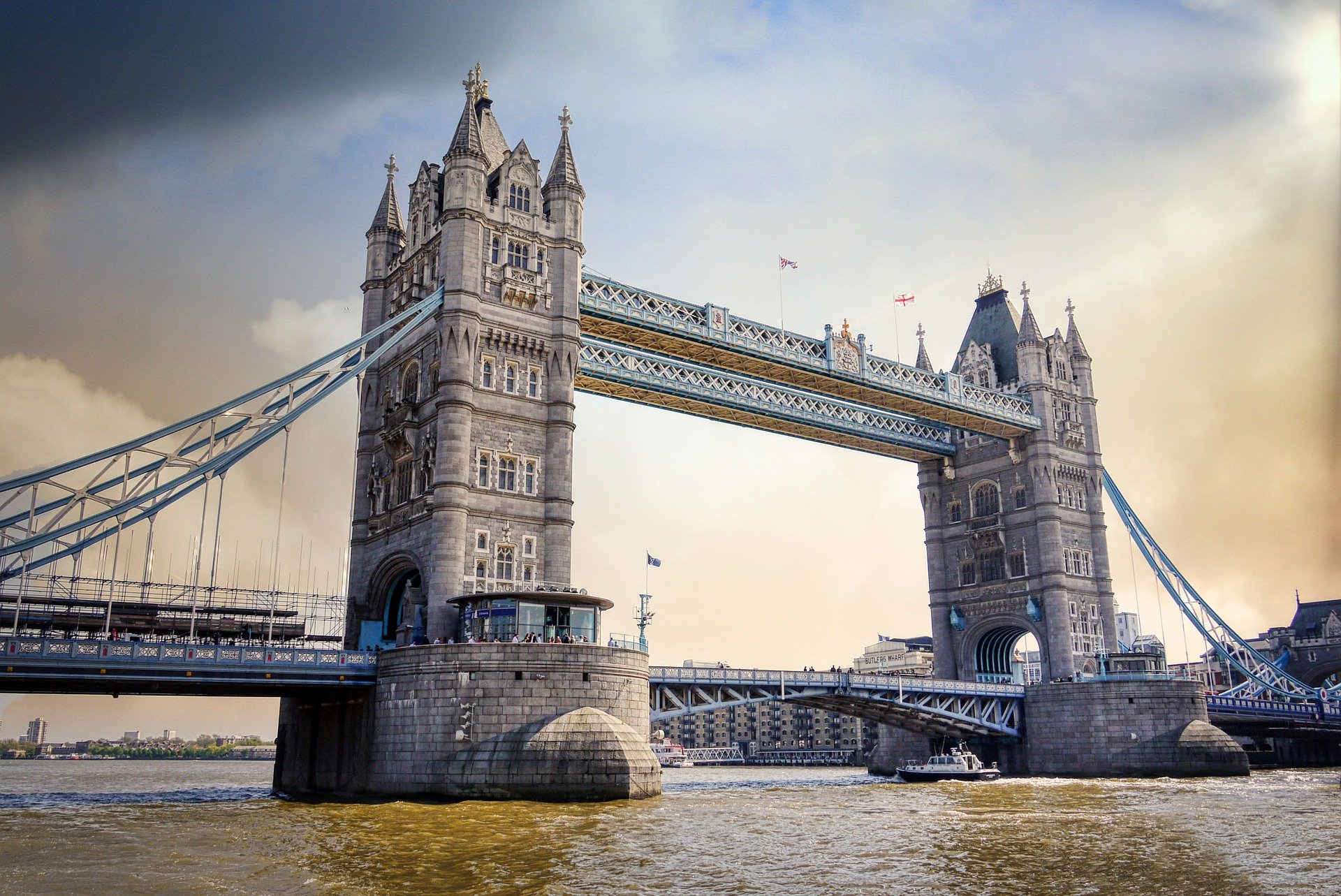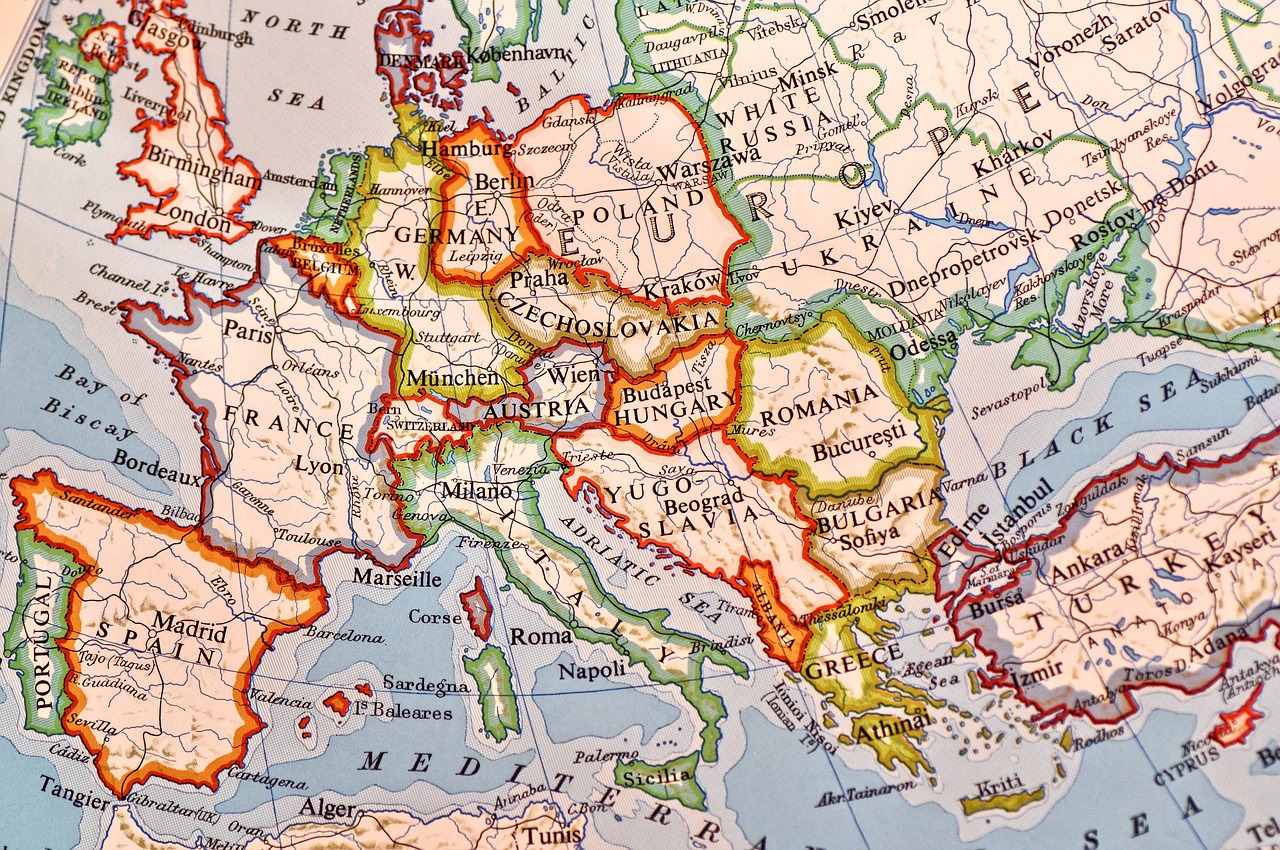European countries are reintroducing some measures on COVID-19 to limit the increase in cases of the highly infectious variant Delta. Spain entered the fifth wave of the pandemic, which led to the reintroduction of curfew in tourist hotspots; Greece and the Netherlands are again imposing restrictions on hospitality; and in France, where the number of infections is rising, officials are introducing mandatory vaccinations or a negative test result for visits to cultural institutions, restaurants and bars.
The rapid spread of the Delta variant of COVID-19 across Europe has led to an increase in coronavirus cases among unvaccinated people. In just a few weeks, this outbreak has reversed the downward trend most European countries have reported since late spring, threatening to nullify recent progress in the fight against the virus.
In an attempt to control the spread and encourage the introduction of the vaccine, which has slowed in France in recent weeks, the government has ordered the use of a health pass to enter a cultural or entertainment facility with a capacity of 50 people. From August 1, this will apply to bars, restaurants, cafes, shopping malls, as well as domestic flights or long-distance trains. The state of health shows that the person is fully vaccinated, has recovered or has recently had a negative test for the virus, and this is required of residents and tourists.

Read more: A new health pass in France will be important for your trip – here’s how to get it
The French government has also tightened border restrictions for unvaccinated travelers and those coming from high-risk countries, which now include the UK under the French classification system.
On Twitter, European Affairs Minister Clement Beaune said that travelers arriving from the UK who had not been fully vaccinated could enter France only for important trips and must submit a negative COVID-19 test within 24 hours of the trip. Unvaccinated or partially vaccinated travelers arriving from Spain and Portugal who are in France and on the EU Green List for travel must present a negative test done within 24 hours of departure instead of the former 72-hour time frame, but they France can still enter for insignificant reasons.

Meanwhile, in Spain, as the virus continues to gain momentum – especially among young and unvaccinated people – the country is facing a fifth wave of pandemics. In Catalonia, all businesses and events were closed at 12:30, and the local government limited public gatherings to 10 people. No more than 10 people can now gather in Valencia, and there is a night curfew in more than 30 cities in the region. The Spanish newspaper El País reports that night curfews may also be imposed in the Canary Islands.
Only people who have been vaccinated or recently tested negative for COVID-19 will be allowed in bars, restaurants, cinemas, theaters and other indoor spaces in Greece, according to Reuters. The rules were introduced on July 15 and apply throughout the country, including the Greek islands. On the island of Mykonos, the government has introduced additional measures, such as a ban on music in cafes, restaurants, bars and beach clubs, as well as the introduction of curfew at night.
In Portugal, the city of Lisbon and Porto imposed a night curfew and limited the number of seats and restaurant hours.
And in the Netherlands, the Prime Minister of the Netherlands, Mark Rutte, said that his government had made a mistake by canceling so many measures as soon as the infection started to rise again. “An error of judgment was made. What we thought we could allow, we really couldn’t, ”Rutte said in The Hague.
“We are saddened by this and apologize,” he told reporters.
A government statement said that “the level of coronavirus infection in the Netherlands has increased much faster than expected, as society opened almost completely on 26 June. Most cases of infection occurred in nightclubs and parties with large numbers of people.
As a result, restaurants and bars have returned to providing permanent seats for visitors and will be closed from midnight to 6 am. Discos and nightclubs are closed again, and the country’s coronavirus pass scheme now requires the owner to have a negative result 24 hours before entering an event, sporting event or cultural facility.

As some European countries reintroduce measures, on July 19 Britain lifted all restrictions on COVID-19, including a legal requirement to wear face masks in public, despite a call by the British Medical Association (BMA) to continue using face masks and requiring people to socialize. distance.
If you are traveling to Europe this year, always check the latest activities before planning any trips.

